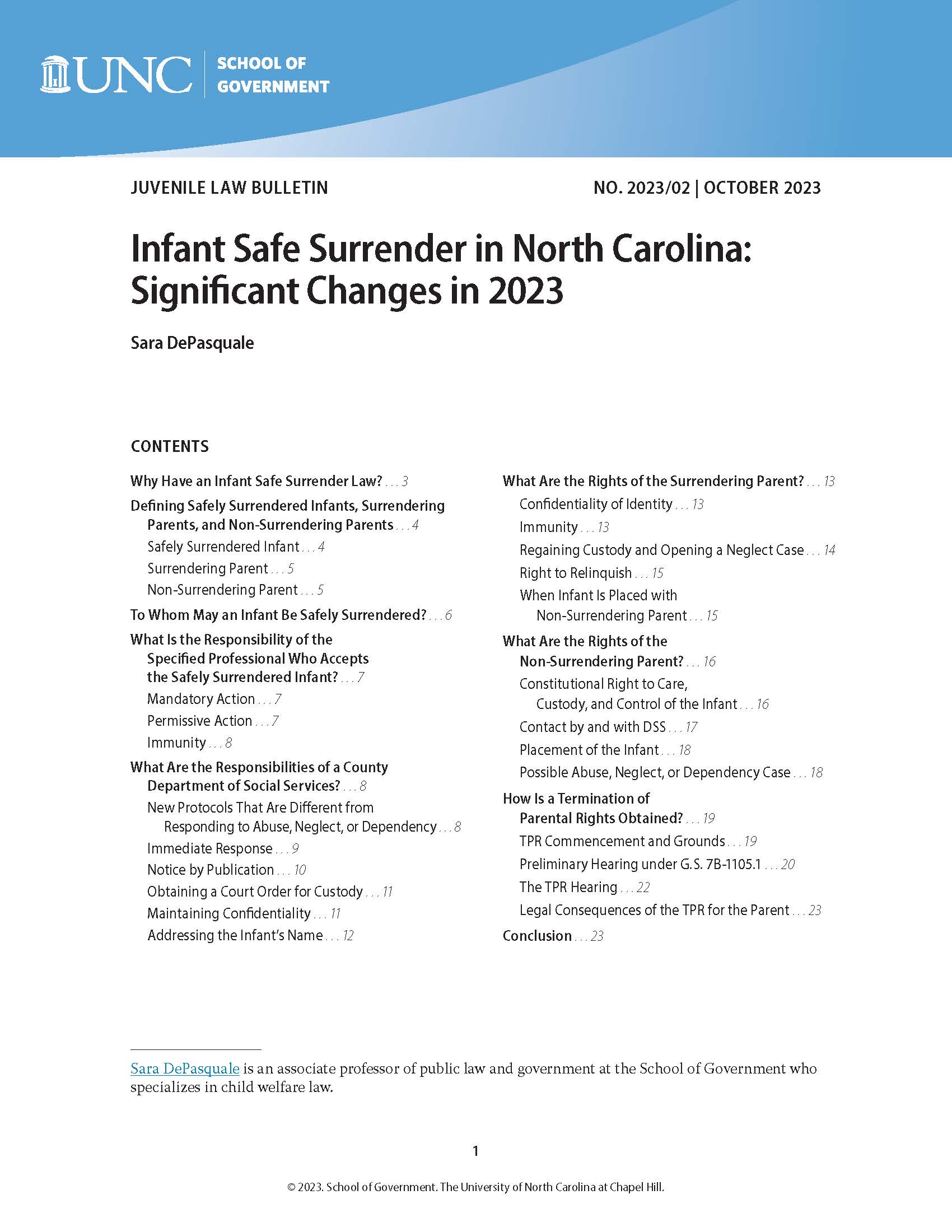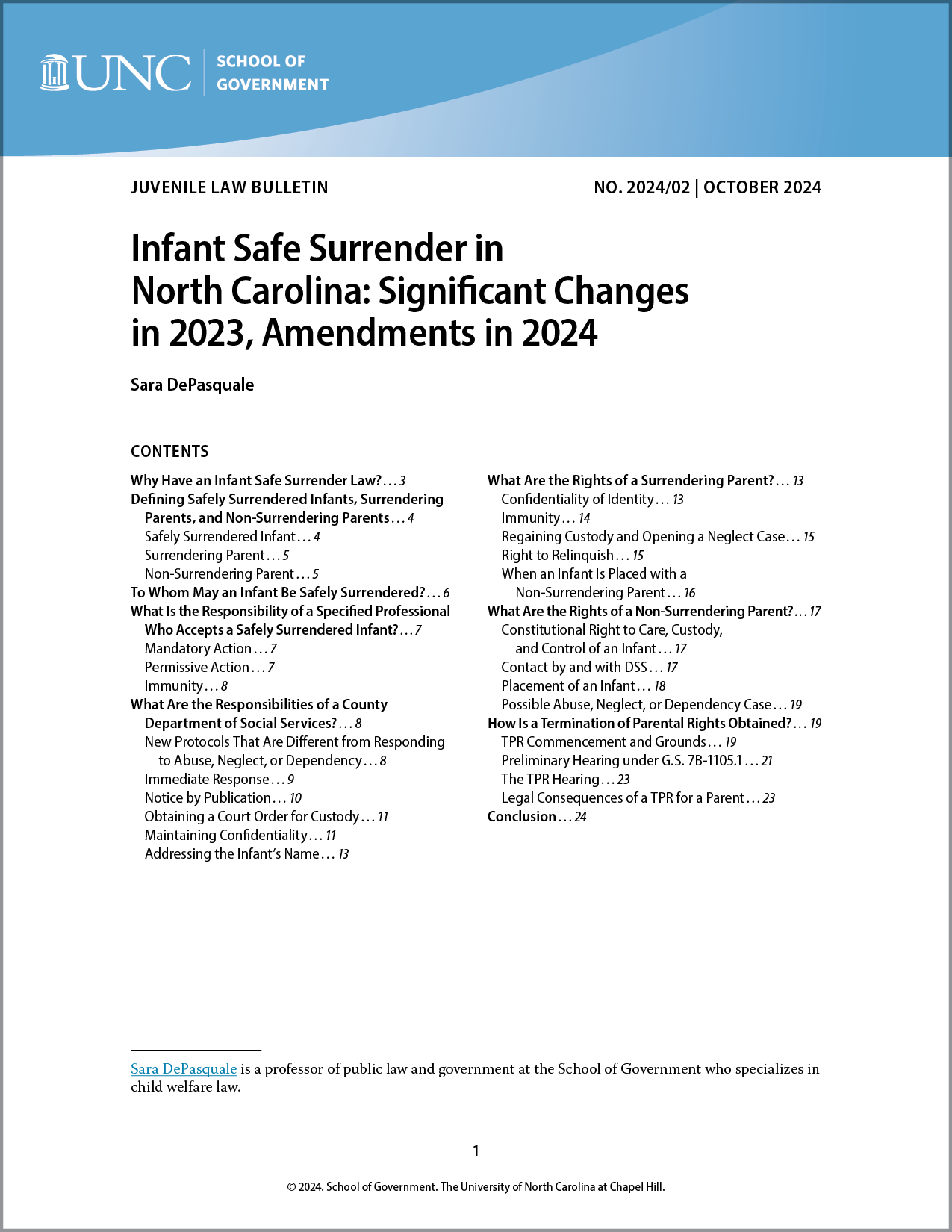Juvenile Law Bulletin #2023/02
Infant Safe Surrender in North Carolina: Significant Changes in 2023
Content from this bulletin has been updated in
Juvenile Law Bulletin No. 2024/02.
The law on infant safe surrender, sometimes referred to as infant safe haven, allows a parent to intentionally and safely abandon their infant without criminal prosecution. If a parent’s abandonment of their infant occurs in the way the law proscribes, then it is not a criminal act or neglect. The infant safe surrender law is designed to prevent infant mortality by giving a parent a safe method for abandoning their infant rather than, for example, leaving the infant in a public bathroom or a dumpster, and ensuring that the infant is immediately cared for and protected until a permanent home is found. It is different from a parent’s relinquishment of their child for adoption, where a parent executes a formal document under oath that authorizes a child-placing agency to find an adoptive home for the child. By contrast, the act of a parent safely surrendering their infant is informal.
Beginning with Texas in 1999, all fifty states now have an infant safe surrender law. The laws in each state vary on who is a safely surrendered infant, who can surrender an infant, and the procedures for responding to a safely surrendered infant. North Carolina enacted its safe surrender law in 2001. Until now, the law has primarily existed in two statutes, Chapter 7B, Section 500 and Chapter 14, Section 322.3 of the North Carolina General Statutes. Since the enactment of these provisions, there have been no significant changes to them until the 2023 legislative session of the North Carolina General Assembly. Effective October 1, 2023, North Carolina’s infant safe surrender law is rewritten by Session Law 2023-14, Part VI, which creates Article 5A of G.S. Chapter 7B.
This bulletin discusses the laws and statutory changes for infants who are safely surrendered on or after October 1, 2023.




